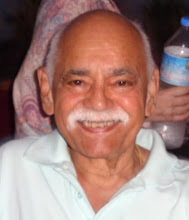Netflix is soon to be launched onto the
stock market. It will certainly be a success and part of its attraction is that
it has ambitions in the TV and film production business. It understands that
control of film software can be an asset to what is currently a distribution
business. Rupert Murdoch adopted this philosophy earlier with huge financial
gains.
Netflix already produces some original
programmes, such as a TV series called ‘Orange is the new black’; a prison
drama featuring nudity and sexual scenes. Recently its spokesman appeared on
Channel 4 trumpeting their magic ingredient that would guarantee large
audiences. This involves an algorithm and big data. Put simply the algorithm
sifts through the audience preferences from their huge database to suggest the
ideal ingredients for hit shows.
Forty years ago, two enterprising
researchers at Masius Wynne Williams, then the second largest Ad Agency in
the UK, successfully developed ‘TAPE’ which I think referred to Television
Audience Preference Evaluation. It purported to predict audiences to TV
channels based on their programming contents. Of course things were simpler
then. In the UK we only had two channels, but the model was exported to the
States where it was adopted by more TV channels and film Studios.
The problem with these models is that they
can only use existing data and the key element that constitute programming
success is originality. What algorithm would predict the success of ‘Steptoe
and Son’ or ‘Dad’s Army’?
Raymond Snoddy, writing in MEdiaTel’s
newsline, reports on the huge successes of ‘DR’, Denmark’s small public service
broadcaster. They are responsible for hits that include The Killing, Borgen and
the Bridge. The rest of this piece is based on Mr. Snoddy’s thoughtful report.
Morten Hessedahl is DR’s head of cultural
affairs and responsible for the programmes mentioned. He says:
“Never trust your research department
and certainly do not let them inhibit your creativity. Numbers are good and
reassuring, but they can only tell you about what worked in the past.
Stand behind the vision of the author at
all times.
Don’t use external production houses”.
Mr. Hesserdahl is a talented, experienced
and original thinker. I would trust his judgement over any algorithm invented
by Netflix.


